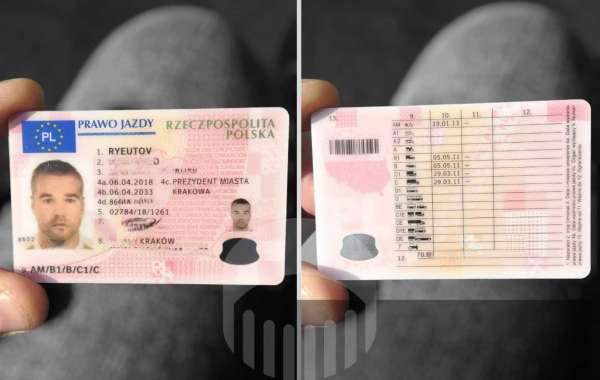 Driving License Category C
Driving License Category CDriving license category C is a commercial driver's licence (CDL). This license usually permits drivers to drive vehicles that have a an authorized maximum weight of more than 1 tonnes.
This includes cab and trailer vehicles designed to transport 16 or more occupants (including the driver). Also, passenger vans and small HAZMAT vehicles.
What is a Class C License?
There are a myriad of ways to classify a commercial driver's license (CDL) and each category opens doors to various career possibilities. The process of obtaining an CDL requires an impeccable driving record passing a medical test and meeting the age requirements. It is also essential to study the kinds of vehicles classified under each category and figure out which endorsements are required.
Depending on the state, a class C license can be used to drive single vehicles that have a Gross Vehicle Weight Rating (GVWR) of 26,001 pounds or less, or vehicles that tow another vehicle weighing up to 10,000 pounds. This includes delivery trucks or passenger cars as well as a small HAZMAT vehicle.
To obtain a class-C driver's license, the driver has to meet federal and state requirements as along with the GVWR. For example the class C driver must pass a drug test and a background check. They also must have an current driver's license issued by the state and pass the pre-trip inspection test.
A driver in class C may gain additional endorsements in order to improve their career prospects. For example, the "P" endorsement enables the driver of class C to operate school buses. Other endorsements, such as the "T" and "H" endorsements, allow truckers to transport certain goods and could lead to greater earnings potential.
To obtain an endorsement the driver must pass a knowledge test and a test of skills. The exam and skills test are usually conducted by the local trucking company. To pass the test, a driver has to provide an industrial vehicle that passes an inspection prior to departure and demonstrate their ability to safely drive the vehicle under different road conditions.
A class C license can open doors to a variety of careers, such as delivery drivers, driving instructors, and movers. A class C license could enable individuals to work for themselves as the owner of a trucking company or operator. To obtain a class-C license, drivers must find out the requirements of their state and pass the required tests and tests, complete the driver training, practice, take the driving exam, and pay any licensing fee. In New York, you can get this done through the Department of Motor Vehicles. For more details, visit the DMV's website or call a nearby branch.
How do I obtain a Class C License?
A Class C license is a commercial driver's license (CDL) that is required to operate certain types of vehicles, such as those that transport hazardous materials or passengers. This license requires several steps, including meeting the age requirements, passing a DOT exam and passing other tests. Additionally, applicants may require special endorsements to drive certain kinds of vehicles, including tanks or buses.
The main difference between a Class C and other CDL classifications is that the Class C license allows individuals to operate single vehicles that have a Gross Vehicle Weight Rating (GVWR) of 26,001 pounds or less, and also vehicles towing another vehicle with a GVWR of up to 10,000 pounds. This includes passenger vehicles and small HAZMAT vehicles. Additionally, the Class C license permits drivers to drive interstate or intrastate vehicles, whereas other CDL classifications only permit interstate driving.
To get a Class C License, applicants must complete the Commercial Driver License Application. They then submit it to their state motor vehicle licensing agency, or to the federal motor vehicles licensing agency. The application usually asks the applicant for personal details like name and address as well as an investigation of their background. In accordance with the state's requirements, applicants may also be required to pass a physical or vision exam as well as writing tests.
If the application is accepted after which the applicant must to get an Commercial Learner's Permit (CLP) and practice driving under supervision. In certain states, the applicant may need to complete a training course before they can get their Class C license. The Class C CDL does not require that the driver complete the Entry Level Driver Training.
After practicing driving under supervision the applicant must pass a driving exam. The test will require operating the vehicle in a controlled setting to prove they have the skills and knowledge required to operate the vehicle safely and effectively. After passing the driving test, the applicant must pay the Class C license fee.
What are the prerequisites to obtain a Class C License?
Obtaining a Class C License is a lengthy process that requires drivers to meet many health, age, and safety requirements. The applicants must pass the physical and vision exams, keep a Commercial Learner's Permit (CLP), complete training courses, practice driving, take the CDL exam and pay the licensing fee to begin their career as a professional driver.
Depending on the specific requirements of the Class C License holder they could be able to operate passenger vehicles such as vans, buses or trucks that tow vehicles of less than 10,000 pounds. They might also be able to transport hazardous materials. This wide array of vehicle types highlights the flexibility and utility of this particular type of commercial driver's license.
In addition to meeting basic eligibility requirements Class C License holders must also satisfy specific knowledge tests in order to obtain the appropriate endorsements. These include:
P (Passenger) is a permit that permits drivers to operate vehicles with 16 or more passengers including the driver. S (School Bus) required for drivers that transport school children in buses.
N (Tanker) allows truckers to operate tanker trucks that transport gases and volatile liquids. This designation requires the successful completion of a test for niche knowledge.
This certification requires a passing of a knowledge test. This designation enables drivers to haul dangerous goods and background checks is usually required in addition.
The final requirement for obtaining an Class C License is the successful passing of the CDL road test. The test is split into multiple segments that assess the driver's ability to perform pre-trip checks, demonstrate basic control of the vehicle and safely drive. The road skills test typically includes a vehicle towing exercise and the use of a trailer.
After passing the road skills test Class C License holders have to take a written test that covers topics such as safety rules, vehicle regulations, and driving laws. In certain states, a CDL driving test can also include an element of practice that requires the driver instructor with a list of things to be aware of when driving, and providing feedback on their performance.
What career opportunities are available with the Class C License?
A CDL license opens up a variety of career opportunities across a variety of industries. Whether you want to drive trucks, buses or vans, obtaining this certification opens the door for many different types of trucking jobs. Examples include delivery drivers, who pick up and deliver the shipments, movers who are involved in residential and commercial moving projects, or parts drivers, who bring equipment components to a job site for assembly. Class C license holders can also drive vehicles that carry 16 or more passengers or transport dangerous materials.
A career as a commercial driver enables you to travel and explore the country in style. It's crucial to know the distinctions between the various classes of CDL in order to get the best one that meets your needs in driving. Class A is required for those who wish to drive large trucks and combine vehicles with a gross weight rating (GVWR) of 26,001 or more pounds. Class B is required for the drivers of any vehicle weighing less than 26,001 pounds, and also vehicles used to tow trailers and other towed vehicles. Class C is designed for those who want to operate all other vehicles that aren't in the two other categories.
If long distance driving isn't the right choice for you, there are plenty of other trucking jobs that require only an a class C license. A popular option is bus driving, where you can choose between domestic and interstate routes. You can also drive local shuttles city buses charter or sightseeing buses or airport shuttles.
Towing and recovery jobs are also available locally, but they require excellent mechanical skills and the ability to work under pressure. These drivers keep the country's highways safe and smooth by responding to roadside accidents or recovering vehicles after accidents.
 Getting a class C license takes some dedication, but it's worth the effort as this is a versatile credential that offers numerous rewarding and exciting career options. You can find out the requirements for your state on the internet or Kup Prawo Jazdy Z Kodem 95 by visiting a DMV office. You can then take the required tests and finish your training to start your career in trucking.
Getting a class C license takes some dedication, but it's worth the effort as this is a versatile credential that offers numerous rewarding and exciting career options. You can find out the requirements for your state on the internet or Kup Prawo Jazdy Z Kodem 95 by visiting a DMV office. You can then take the required tests and finish your training to start your career in trucking. 







